Water Based Concrete Sealers vs Solvent Based Concrete Sealers
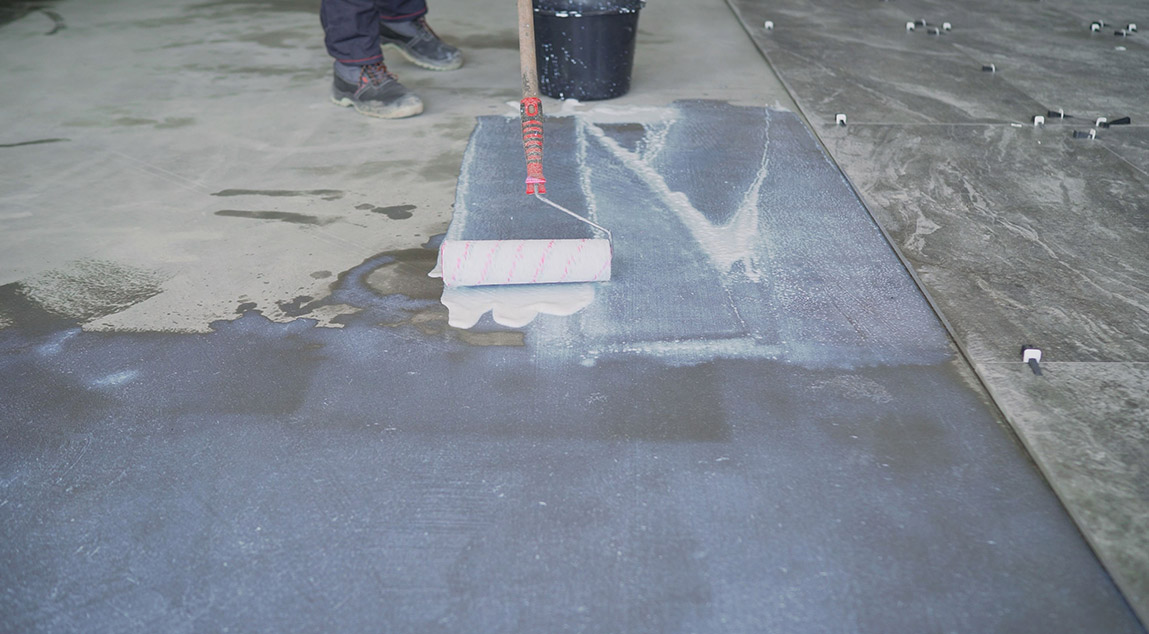
When you’re doing a home improvement project, you want the best possible results. When it comes to maintaining concrete surfaces such as concrete pavers, a residential driveway, a backyard patio, or commercial flooring, you need to make sure you’re using the most suitable product. While you may have chosen a specific kind of concrete, it is equally important to apply a concrete sealer to your finished surface. However, all sealers have different strengths, and the choice between water-based and solvent-based options can be confusing.
Concrete sealers serve as a protective coating for your concrete surfaces, defending against damage and enhancing their overall appearance. But with so many options, how do you decide which one is the best fit for your specific needs? Should you opt for a water-based sealer, or is solvent-based a better choice? This article aims to clarify the differences, providing a comprehensive comparison between water-based and solvent-based concrete sealers.
What are Concrete Sealers?
Starting with the basics, what are concrete sealers? They are essentially protective coatings that are applied over concrete surfaces, creating a barrier which preserves and maintains the appearance, stability, and lifespan of the concrete surface.
At a molecular level, concrete sealers lock out moisture, harmful chemicals, and damaging ultraviolet (UV) rays with a matrix of solidified acrylic polymers. This protective layer is an excellent way to help your concrete last longer. Sun, wind and rain can lead to cracking, pitting, and a multitude of other forms of degradation if the concrete is not protected.
How does a concrete sealer actually work? Simply put, once the sealer is applied, it penetrates the concrete and fills the minute pores within the concrete structure. It then hardens, creating a solid barrier and repelling water, oil or dirt from entering the concrete. This not only helps in maintaining the structural integrity of the concrete surface but also enhances its overall aesthetic appeal, preserving its original look and feel over prolonged periods of time.
There are a number of advantages to using these film-forming sealers. For starters, they add an extra layer of protection to your concrete surfaces, extending their lifespan and reducing the need for frequent repairs or replacement. This can mean considerable savings in the long run. A well-sealed concrete surface is also easier to clean and maintain, reducing the efforts required for its upkeep.
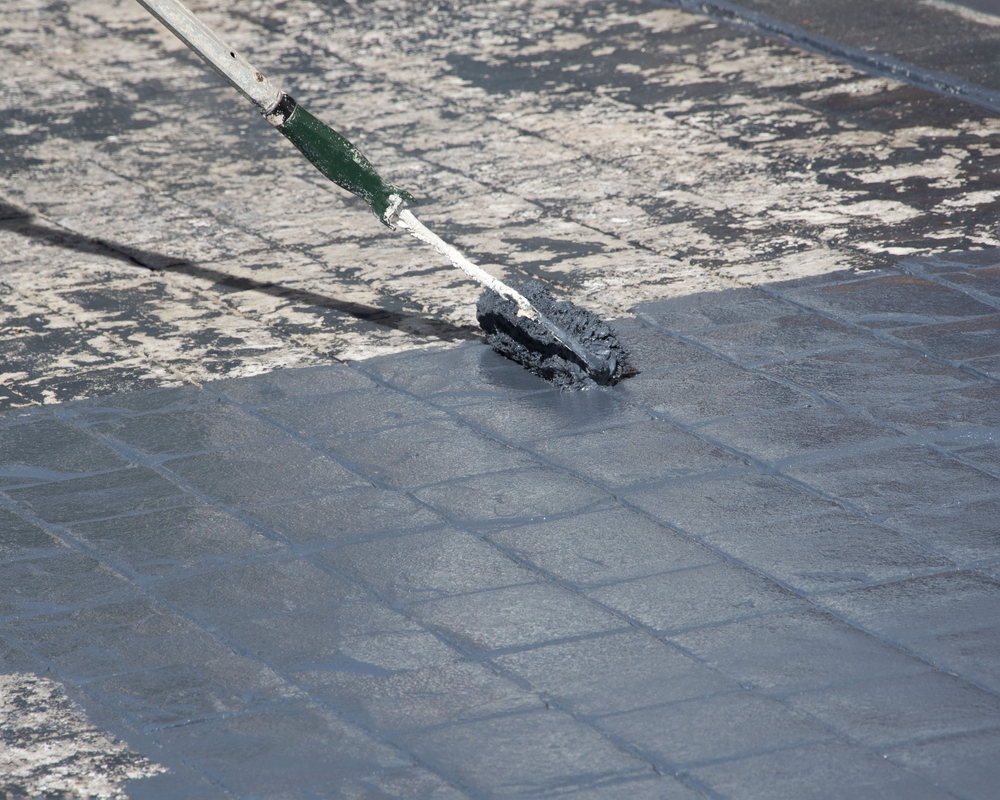
Water-Based Concrete Sealers Vs. Solvent-Based Concrete Sealers: What’s the Difference?
Understanding the differences between water-based and solvent-based concrete sealers is crucial while determining the right type of sealer for your concrete surfaces.
Water-based sealers, as the name suggests, are primarily made up of water with acrylic solids suspended in it. Also known as water-based acrylic sealers, they’re widely celebrated for their eco-friendliness, due to their lower levels of harsh chemical components and less Volatile Organic Compounds (VOCs). Their composition makes them easier to apply than their solvent-based counterparts, often favoured for their more natural, matte finish.
Water-based acrylic sealers generally have a lower gloss level, which might not be ideal if you’re aiming for a high-shine finish.
Solvent-based concrete sealers use chemicals like acetone or xylene as the base liquid but contain acrylic solids much like their water-based counterparts. They are renowned for their high gloss finish, which can dramatically enhance the look of your concrete surfaces. Solvent-based sealers also penetrate more deeply into the concrete, creating a strong bond. This makes them an excellent choice for surfaces exposed to heavy traffic or harsh weather conditions.
However, the application process for solvent-based sealers is more complex and requires careful handling. They also are higher in VOCs, making them less environmentally friendly. If you’re particularly sensitive to strong smells, bear in mind that these sealers have a more potent odour during application.
Exploring the Applications of Water-Based and Solvent-Based Concrete Sealers
While both water- and solvent-based sealers are perfect for almost every application, there are key areas where each type will excel.
Because water-based sealers are typically low in VOCs, they pose less of a risk to the user and the environment. If you are eco-conscious or sensitive to strong chemicals, this sealer may be a better choice for you.
The low odour of water-based sealers also makes them an excellent choice for indoor applications, such as concrete floors. This feature ensures that the indoor air quality remains unaffected post-application, which is important in spaces with limited ventilation.
One unique feature of water-based sealers is that they tend to leave the original colour and texture of the concrete surface largely unchanged, unless the opposite is desired. This makes them an ideal choice for decorative concrete surfaces, where the colour, texture and pattern is the focal point and shouldn’t be altered.
Solvent-based concrete sealers have a few different benefits. First, they are well-known for their effects on concrete colour and texture. They penetrate deeply into the concrete, darkening the material and creating a wet look finish (nowadays water base will do this too). This effect can add to the visual appeal of your outdoor concrete surfaces, such as driveways and patios. Additionally, solvent-based sealers offer a high-gloss finish, which can add a touch of elegance to your concrete surfaces.
How Long Do Concrete Sealers Last?
The length of time concrete sealers last can vary. It depends on several factors, including the quality of the product used and the conditions of the concrete surface it’s applied to. For instance, a high quality concrete sealer applied to a well-prepared and primed surface can last significantly longer than a lower quality product applied without proper preparation. The type of traffic the surface encounters can also impact the sealer’s longevity.
Water-Based Sealers
On average, water-based sealers tend to have a longer lifespan, lasting about 5 years before a reapplication is necessary.
They are more resistant to wear and tear. They offer an eco-friendly solution and are easier to re-apply and maintain, making them a popular choice for indoor applications and decorative surfaces.
Solvent-Based Sealers
On the other hand, solvent-based sealers will often last between 3 to 4 years before requiring reapplication. They penetrate deeper into the concrete, offering protection against UV rays, and wear and tear.
Additional Factors
When considering how long a concrete sealer will last, it’s essential to remember that the surface’s maintenance also plays a critical role. Making sure the area is clean and free from damaging substances like oil or harsh chemicals and calcium will prolong the sealer’s lifespan. This can be done most effectively with a targeted concrete cleaning chemical. Regular cleaning and resealing as necessary will also help maintain the concrete surface’s appearance and integrity over time.
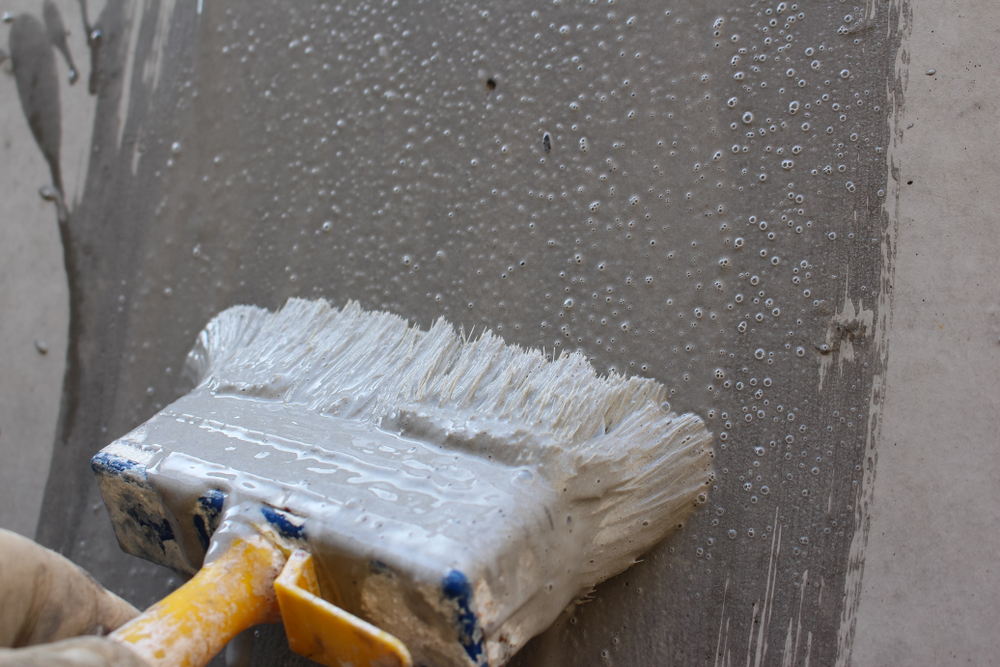
Spraying Vs. Rolling: Best Techniques for Applying Concrete Sealer
Once you’ve chosen the sealer you prefer, you’ll need to decide how you’d like to apply it. There are two different methods we prefer – spraying and rolling. These two methods, although different, are both highly effective. The choice between the two often boils down to the specific demands of the project you’re working on.
Spraying is a technique that is known for speed and ease, particularly when dealing with larger surface areas like driveways and patios. This method uses a spray device that distributes the sealer across the entire surface in a fine mist. This not only makes the application process faster, but also helps in reaching those hard-to-access nooks and crannies. Bearing in mind that solvent based sealers require a solvent resistant sprayer, which are not particularly cheap.
A key thing to remember when using the spraying technique is to apply the sealer in even, overlapping strokes to avoid the creating puddles or missing spots. This method is often better when applying solvent-based sealers due to their thinner consistency, but can also work with water-based sealers too.
On the other hand, rolling is a method that calls for a bit more time and effort but offers a higher level of control. Using a paint roller, the sealer is applied to the concrete surface. This technique is often preferred for indoor applications or smaller areas, where precision is crucial. When using water-based sealers–which are typically thicker in consistency–a roller application can ensure an even and thorough coverage. A broom can also be a fantastic option for applying sealer, depending on the type of concrete it is being applied to.
How Much Do Concrete Sealers Cost?
Let’s talk about cost. Solvent-based sealers tend to be cheaper than water based . Water based sealers, however, tend to last longer, which could make them a cost-effective option in the long run. On the other hand, solvent based sealers, despite being less expensive upfront, may require more frequent reapplication.
But it’s not just about the initial cost. Consider the upkeep, too. Solvent-based sealers might require professional removal with a solvent-based stripper when it’s time for reapplication, adding to the overall cost. However, water-based sealers can be stripped off with a less expensive chemical stripper, which can be a DIY task, saving on professional removal costs.
So, while making your decision, it’s essential to weigh these aspects alongside the aesthetic and functional attributes of the sealers. It’s a balancing act, and the right choice will depend on what factors are most important to you and your specific project requirements.
Frequently Asked Questions
No, the existing solvent-based sealer must be entirely removed before applying a water-based product. This is because solvent-based sealers penetrate deeper into the concrete, creating a barrier that water-based sealers can’t adhere to. The same is true for the opposite, solvent based will not adhere to a water based.
The curing time for solvent-based sealers can vary based on environmental conditions and the specific product. Generally, they take about 4 to 12 hours to dry enough for pedestrian traffic, but it could take up to 7 days or more to fully cure. Always consult the product’s label for accurate curing times. Generally, foot traffic within a few hours, vehicle traffic at 5-7 days, but no parking on it for minimum 7 days. The same applies for water based.
There’s no definitive answer as the ‘best’ sealer will largely depend on your specific needs and conditions. If you’re seeking eco-friendliness and ease of application, a water-based sealer would be a suitable choice. If you prefer a high-gloss finish, a solvent-based sealer could be the better option.
Sealing concrete comes with substantial benefits, such as increased protection and improved aesthetics. However, it also has a few drawbacks. A poorly applied sealer can result in a patchy or streaky appearance. Additionally, while sealers extend the lifespan of concrete, they do require reapplication. Almost everyone agrees that, for the benefits, the potential drawbacks are well worth it.
Typically, two coats of sealer are recommended for optimal protection. The first coat penetrates the concrete, blocking pores and creating a solid barrier, while the second coat provides a smooth, even finish. The number of coats can vary based on the product and the condition of the concrete. Some very porous concrete may require more than 2 coats. The only way to know is to apply it and see how it looks. If there is any patchiness in gloss or colour, apply more coats until the desired look is achieved.
Choose Concrete Sealers Across Melbourne To Match Your Needs
When selecting the right concrete sealer, it’s not just about comparing water-based and solvent-based sealers. It’s about understanding your specific needs and the nature of your concrete surface. Are you sealing an indoor or outdoor surface? What kind of finish do you prefer—natural matte or high gloss? How often are you ready to reapply the sealer? Are you more inclined towards an eco-friendly product or is durability your top priority? Your answers to these questions play a critical role in determining which sealer is the perfect fit for your project. Hopefully, with this blog, we’ve given you the right information to make a choice that suits your needs.For concrete sealer supplies in Melbourne you can trust, choose Australian Slate-Crete Supplies. We provide all the tools and products you’ll need to create a perfectly sealed concrete surface. If you have questions about concrete sealing or need advice on how to do the job right, contact our knowledgeable staff today.
-
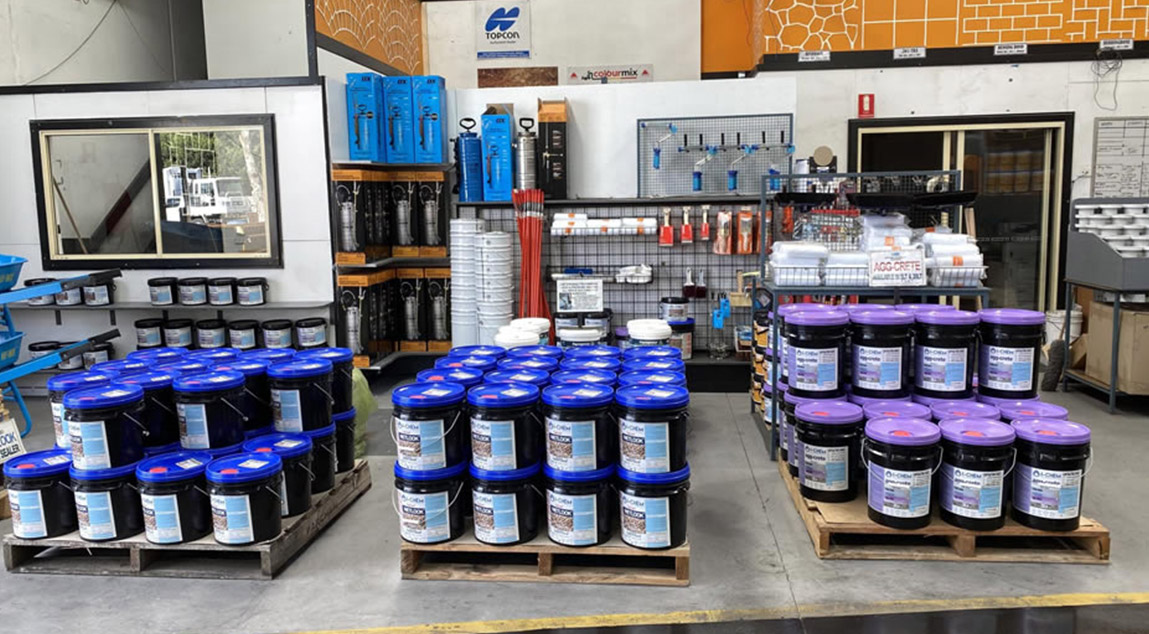 February 4, 2022Sandstone Concrete Stencil
February 4, 2022Sandstone Concrete StencilDo you want to add a touch of luxury and elegance to your concrete projects? If so, then consider using sandstone concrete stencils!
Read More -
 February 4, 2022Gloss Brick Sealer
February 4, 2022Gloss Brick SealerGloss brick sealer is a wonderful material for adding a brilliant shine to your brick slip wall feature.
Read More -
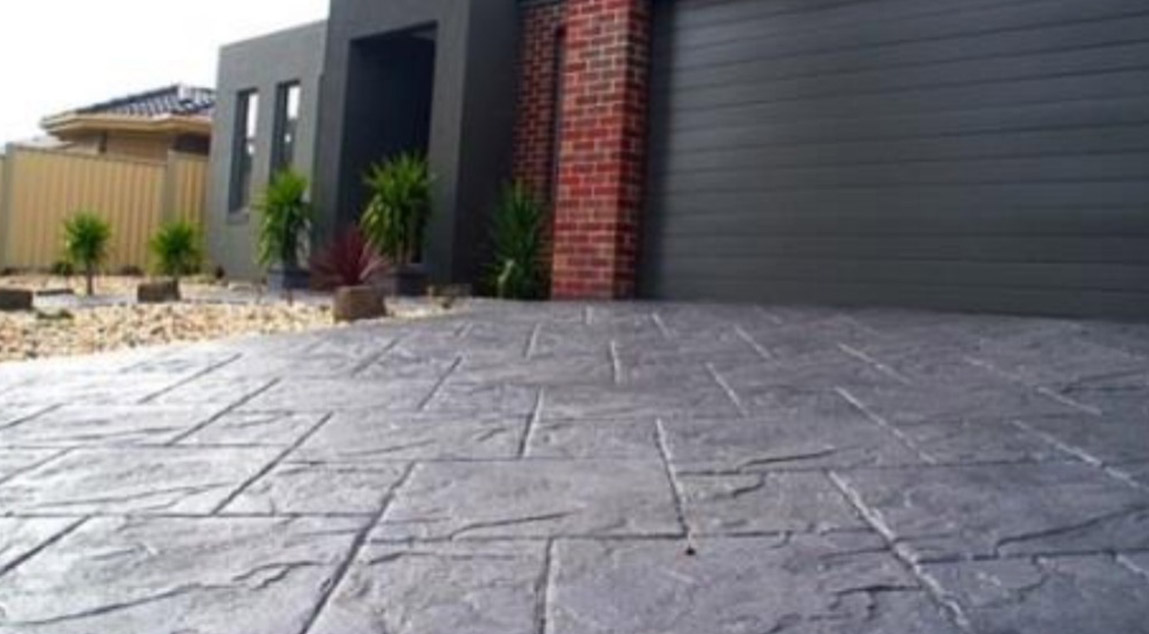 February 4, 2022Bluestone Concrete Sealer
February 4, 2022Bluestone Concrete SealerIn a broad sense, the term “bluestone” is sometimes used to refer to a variety of stones. It’s a marketing term rather than a geological one.
Read More
